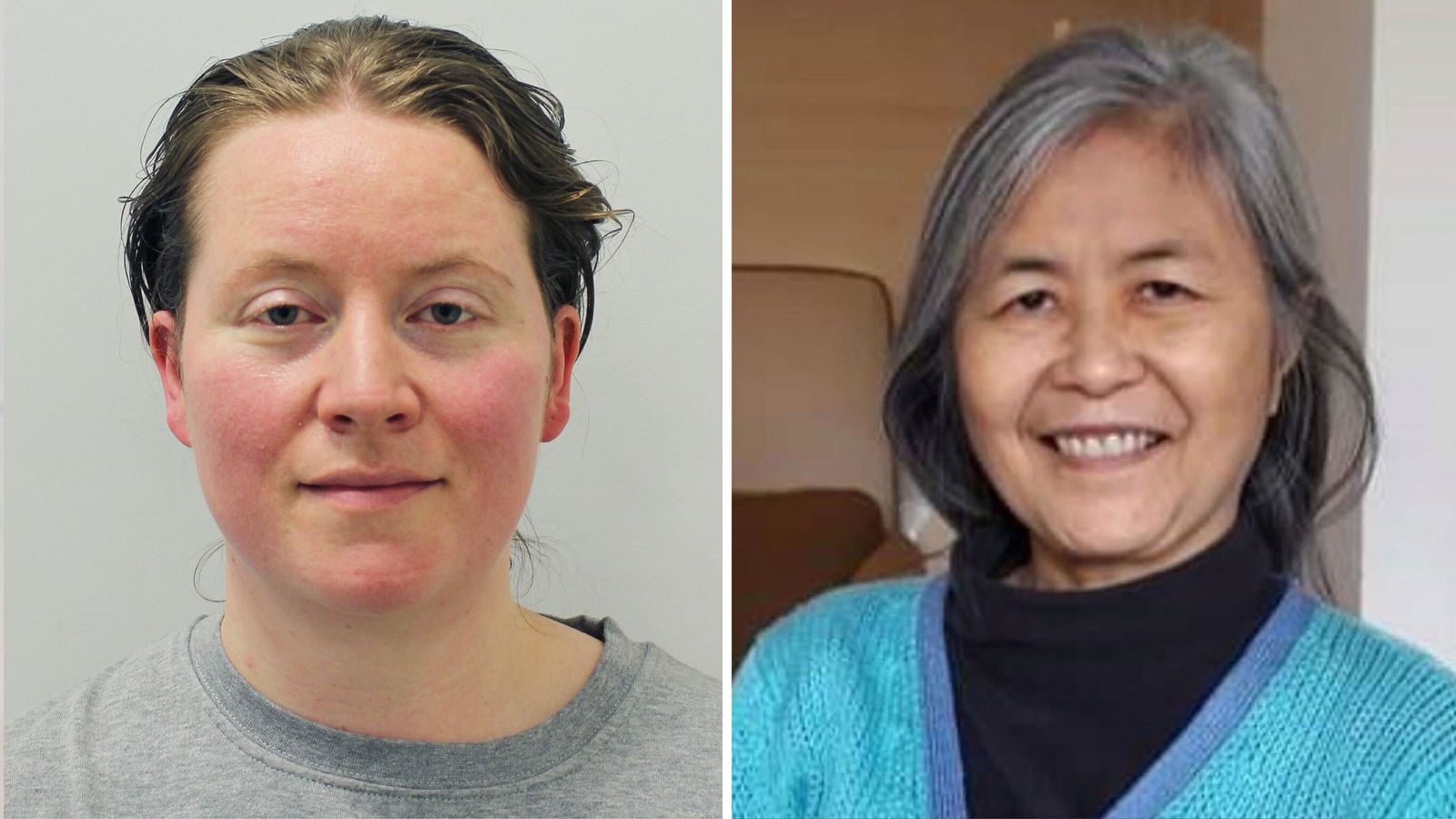A woman has been sentenced to 34 years for murdering and decapitating her friend in a row over money.
Jemma Mitchell, 38, became the first woman in the UK to be sentenced live on television for killing Mee Kuen Chong, 67, also known as Deborah, and dumping her headless body in some woodland more than 200 miles away in Salcombe, Devon.
Jemma Mitchell sentencing – as it happened
Sentencing her on Friday, Judge Richard Marks KC described her as “extremely devious”.
“You have shown absolutely no remorse,” he told her at the Old Bailey. “It appears you are in complete denial as to what you did, despite the overwhelming evidence against you.
“The enormity of your crime is profoundly shocking, even more so given your apparent religious devotion as well as the fact that Deborah Chong was a good friend to you and had shown you good kindness,” he said.
Judge Marks said Mitchell and her mother were living in a house in Willesden, northwest London, and had been cheated out of most of the £230,000 they paid two builders to add another floor to the property.
Police hunt for suspect who pushed a man on to tracks on the London Underground
Two victims of triple shooting in Ilford named and third remains in life-threatening condition
Police name double stabbing suspect – and call on public to help track him down ‘urgently’
“This proved to be your undoing,” he said.
Mitchell, an alternative therapist, was given £200,000 by her victim, but decided to kill her and fake a will to inherit the rest of Ms Chong’s estate.
Mitchell denied having anything to do with her death and declined to give evidence during the trial.
Jurors viewed CCTV footage of Mitchell arriving at Ms Chong’s home in Wembley, northwest London, carrying a large blue suitcase on the morning of 11 June last year.
More than five hours later, she emerged from the property with the suitcase appearing bulkier and heavier.
Judge Marks said: “That large suitcase contained Deborah Chong’s body. I have no doubt that you killed her when inside her house.”
Please use Chrome browser for a more accessible video player
After Ms Chong’s lodger reported her missing, Mitchell claimed she had gone to visit family friends “somewhere close to the ocean”.
The prosecution said Mitchell stored her remains in the garden of the house she shared with her retired mother until 26 June when she put the suitcase in a car she had hired and drove down to Devon.
The hire car was booked with a phone stolen from her dead neighbour’s house, the court heard, whose signature she also used to witness the fake will she wrote.
Headless body found by holidaymakers
On her way to Salcombe, Mitchell was forced to drive into a service station after the car blew a tyre. A repairman who changed the wheel described an “odd musty smell” inside the vehicle, jurors heard.
After the delay, she dumped her body and her head near Bennett Road in Salcombe.
Ms Chong’s headless corpse was found by holidaymakers the next day. Her skull was recovered a few metres away from the body following a police search.
A post-mortem examination confirmed that Ms Chong had suffered a skull fracture along with other injuries consistent with an assault.
Please use Chrome browser for a more accessible video player
Experience of dissecting bodies
The court heard Mitchell and Ms Chong, who met through church, had exchanged several messages about renovating Mitchell’s home.
They were both “devout Christians”, the judge added.
Mitchell decided to murder her victim after she pulled out of giving her the £200,000 to pay for the refurbishment of her £4m home.
The judge said Ms Chong had a “serious history of mental illness”, was on anti-psychotic medication and was “particularly vulnerable, both mentally as well as physically” before she died.
He also said as part of her degree in human sciences from King’s College London, Mitchell “was taught anatomy” and “had experience in the dissection of human bodies”.
“That no doubt stood you in good stead,” he said.
Judge Marks said there were three aggravating factors to Mitchell’s crimes – her planning, her victim’s vulnerability and “the chilling aspect” of what she did to the victim’s body after she died.
She had a previous conviction for breach of a non-molestation order, but was of “effective previous good character”.






